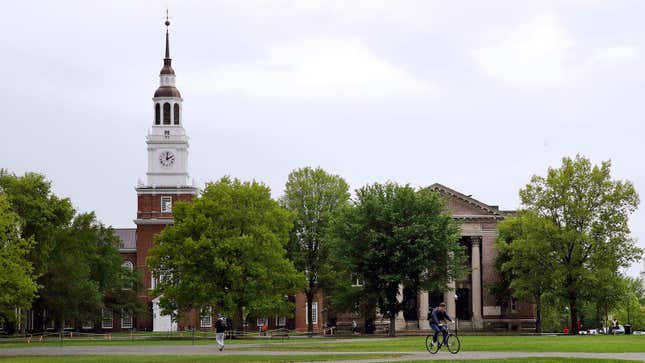Colleges Pressure Alleged Sexual Assault Victims to Publicly Reveal Their Identities
Latest

Two colleges are threatening to toss out the lawsuits of alleged victims of sexual assault unless the women reveal their identities to the public. The move sends an alarming message to victims of sexual assault, and if adopted by more colleges, will undoubtedly deter victims from coming forward.
The New York Times reports that Florida A&M and Dartmouth College have taken unusual and troubling actions against students who’ve sued the institutions, demanding in court that the women—whose identities are known by administrators—also share their names with the public.
One woman, identified in court documents as “S.B.” alleges she was raped three times in 2012 and 2013, and that campus officials did not adequately investigate the claims or protect her from having further contact with the alleged rapists. Florida A&M countered with a demand for “her legal name be provided to jurors at trial,” insisting that this was essential for “a fair and open trial” because she had publicly identified the alleged rapists and the campus officials who allegedly mishandled her case. The university tried to have the lawsuit dismissed three times unless S.B. reveal her identity.
-

-

-

-

-

-

-

-

-

-

-

-

-

-

-

-

-

-

-

-

-

-

-

-

-

-

-

-

-

-

-

-

-

-

-

-

-

-

-

-








































